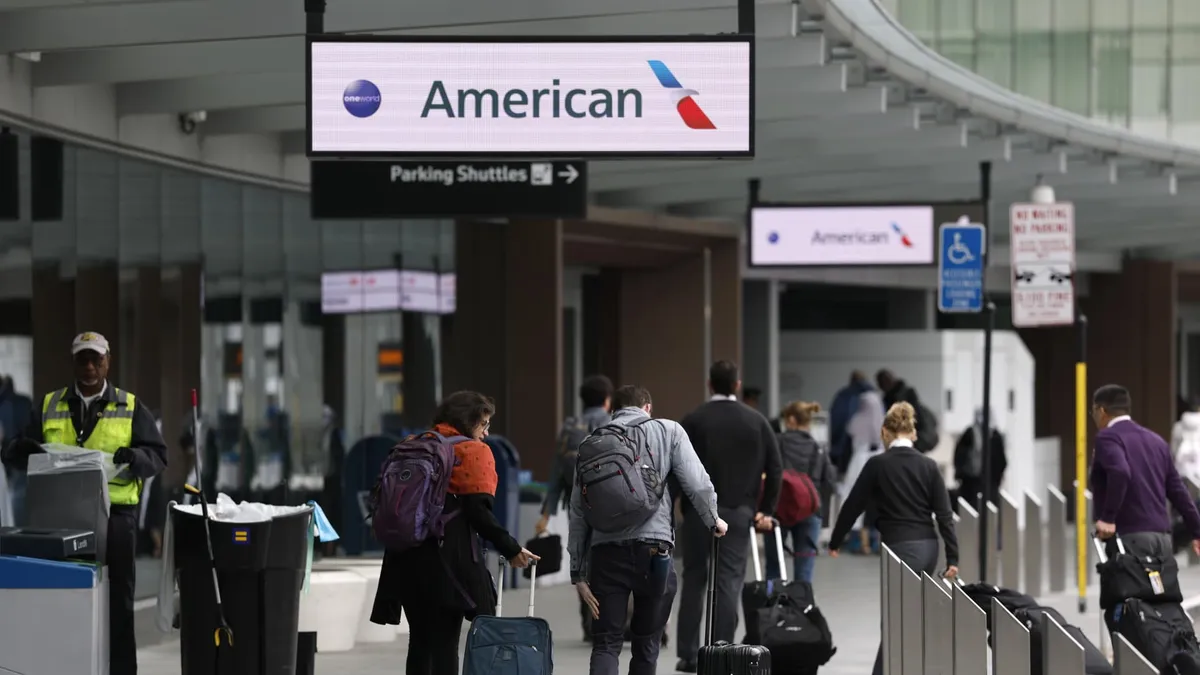
In recent earnings calls, several airline CEOs have sounded the alarm about a potential downturn in the travel industry, particularly concerning the domestic travel market. They indicated that passengers' appetite for domestic trips is waning, which is not what they had anticipated when they set optimistic forecasts for 2025. This shift in consumer behavior is attributed to a combination of factors, including the unpredictable tariff policies from former President Donald Trump, volatile market conditions, and significant economic uncertainty.
American Airlines CEO Robert Isom highlighted that uncertainty plays a critical role in vacation planning, stating that "nobody really relishes uncertainty when they're talking about what they could do on a vacation and spend hard-earned dollars." This sentiment reflects a growing concern that airlines are finding themselves with an excess of available seats, leading to potential financial challenges.
Major airlines, including Delta Air Lines, Southwest Airlines, and United Airlines, announced plans to scale back their capacity growth after a strong summer travel season is anticipated. In light of the unpredictable U.S. economy, Delta, Southwest, Alaska Airlines, and American Airlines have retracted their financial outlooks for 2025. United Airlines even provided two separate outlooks, one assuming a potential recession, while still projecting profitability in either scenario.
The growing uncertainty in the industry has resulted in a notable decrease in airfares, with prices falling by 5.3% in March compared to the previous year, as reported by the Bureau of Labor Statistics. This decline in ticket prices is partly due to the timing of Easter, a peak travel season that coincides with school vacations. Furthermore, airfare dropped by 4% in February, adding to the downward trend.
Airline executives have also pointed to slower-than-expected growth in corporate travel, which is facing similar challenges as household spending. Conor Cunningham, a travel and transportation analyst at Melius Research, noted, "If uncertainty pops up, the first thing that goes away is corporate travel." Delta CEO Ed Bastian reported that while corporate travel was trending up 10% year on year at the beginning of 2025, that growth has since stagnated.
Business travel is a crucial revenue source for major carriers, as these customers tend to be less price-sensitive and often book last-minute flights, which are typically more expensive. However, the excess of seats in the domestic market is compelling airlines to lower prices to ensure their planes are filled.
Alaska Airlines CFO Shane Tackett recently warned that weaker-than-expected demand could negatively impact their second-quarter earnings. While he noted that demand hasn't completely plummeted, the airline has had to reduce some fares to fill seats. Tackett commented on the current state of demand, stating, "The fares aren't as strong as they were in the fourth quarter of last year." Although demand remains high within the industry, it has not reached the levels initially anticipated following last year's surge.
Despite the challenges in the domestic market, airline executives report that demand for international travel is holding up well, with U.S.-based customers continuing to travel overseas in significant numbers. However, lingering concerns about economic stability weigh heavily on the industry. Isom stated, "Certainty will restore the economy, and I think it will restore it pretty quickly," suggesting that clarity could lead to a rebound in consumer confidence and travel spending.